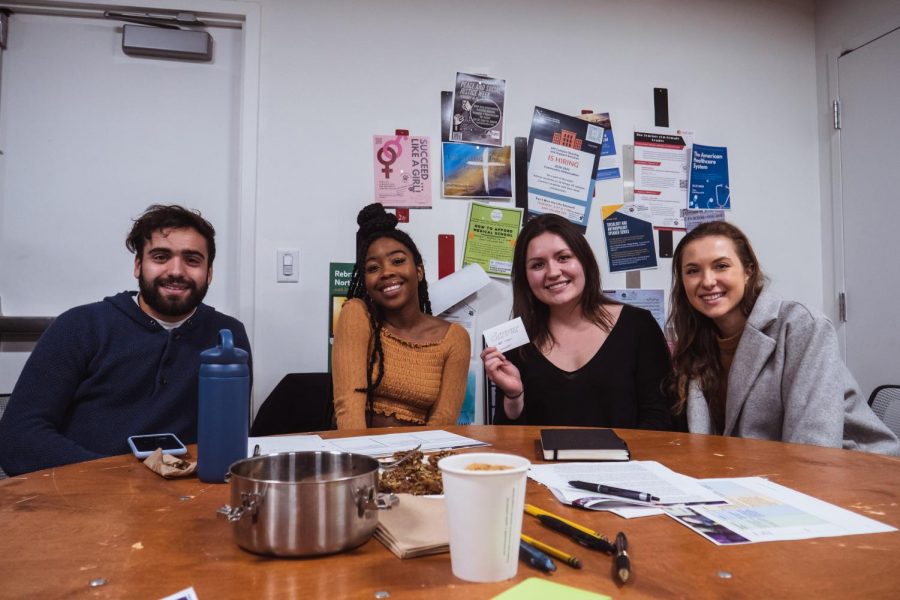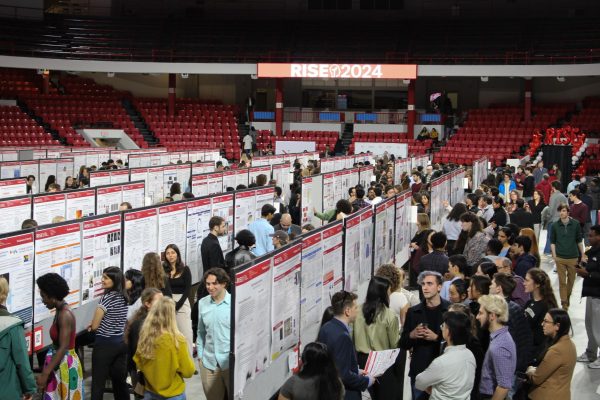Net Impact Northeastern: Sustainable thinking outside of the box
The group’s main impact comes from social events and community service.
March 12, 2020
Sustainability has become a greater issue within the past few years, as actions grow to combat climate change. One group at Northeastern University takes on a different path toward promoting sustainability on campus.
Net Impact Northeastern is a club that promotes sustainability in an interdisciplinary context. Their chapter was founded in the fall of 2018 and is under the international organization Net Impact.
Andrew Schmitt, a third-year finance major with a minor in sustainable business, was one of the first members to join the group in 2018. He recalled Net Impact Northeastern as being a “low-key club” with around five members.
However, Net Impact Northeastern now has around 20 to 30 members consistently attending each meeting.
“There wasn’t a lot of direction in the beginning, and the founders just knew about the international organization and that they were interested in sustainability,” Schmitt said. “But I joined because I was interested in the intersection between sustainability and the private sector, especially within business.”
He now says that sustainability has an impact on his everyday life.
Melissa Rath, the president of Net Impact Northeastern and a fourth-year mechanical engineering major with a minor in sustainable systems, also joined the club when it first began. Rath emphasized the club’s focus on how sustainability can be incorporated in different areas of study and interests.
“Even if sustainability isn’t part of their study, this club aims to show them how they can be impactful,” she said. “In our opinion, compared to other clubs promoting sustainability, we are the most interdisciplinary.”
Net Impact sends out a newsletter at the beginning of each week with a chosen theme. At the club meetings, they discuss solutions that people had come up with for the theme or problem they had chosen. Some of the themes they have focused on this semester include international climate policy, food waste, plastic and diversity in cleantech.
“Each person’s interest and major is equally valuable, so it gives everyone good opportunities to touch on different subjects during discussion,” said Julia Carlin, a second-year journalism major with a minor in environmental studies.
However, the group’s main impact comes from social events and community service. Almost every week, a social event will be put on, such as going thrifting, eating at a sustainable restaurant or having a potluck to see who can make the ‘most sustainable’ food.
The group has also taken part in community service, participating in clean-ups of the Charles River in Boston or picking up trash in the local neighborhoods.
Rath said that they gain the most attraction on campus from hosting interclub collaboration events. Recently, there was a sustainable platform event where they set up a debate between the College Democrats and Republicans on the topic of sustainability.
One of their upcoming projects is a collaboration with Wollaston’s Market on campus to come out with new vegetarian and vegan sandwiches.
Despite having troubles with the number of members last semester, which eventually caused the group to disband, this semester Net Impact Northeastern has 15 executive board and chair members.
“We are really trying to build a community. We want people of all majors to learn about sustainability and attribute that to their interest and study,” Rath said.
Members of Net Impact Northeastern touched on several goals for the club, which included expanding on-campus by creating a network with other clubs, making a larger impact, as well as for people to realize that sustainability can be integrated despite the major or interest of a person.
“Net impact can be that middle ground for people to share their opinions,” Schmitt said. “Change comes one person at a time.”
With sustainability being such an important aspect of life and a large topic of interest in almost every aspect of life, Rath talked about the importance of understanding it in a disciplinary context.
“Everything you can and do should have something to do with sustainability,” she said. ”It’s just a matter of realizing it.”


















